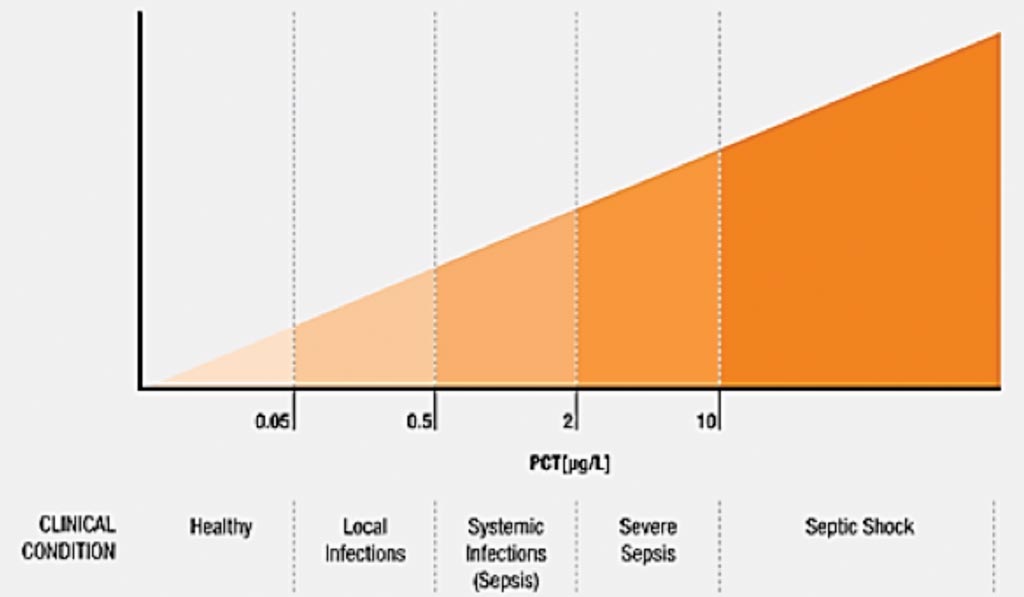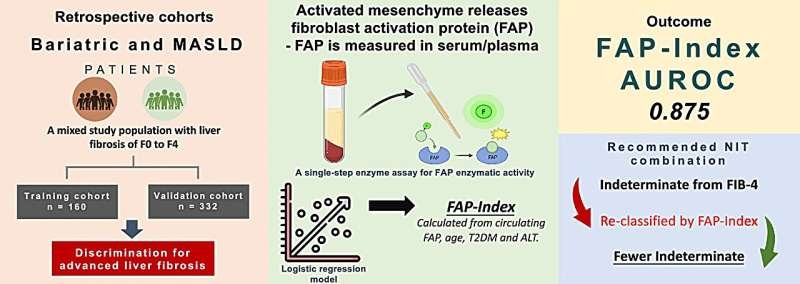Procalcitonin Evaluated as Sepsis Diagnostic Marker
By LabMedica International staff writers
Posted on 27 Feb 2019
Sepsis is a potentially life-threatening condition caused by the body's response to an infection and occurs when the body's response to chemicals released into the bloodstream is out of balance, triggering changes that can damage multiple organ systems.Posted on 27 Feb 2019
Sepsis can progress to septic shock when certain changes in the circulatory system, the body's cells and how the body uses energy become more abnormal. Septic shock is more likely to cause death than sepsis is. The recent definition of sepsis was modified based on a scoring system focused on organ failure (Sepsis-3).

Image: Procalcitonin (PCT) levels and their relation to the clinical sepsis and septic shock (Photo courtesy of Technology Networks).
Scientists at the Yonsei University Wonju College of Medicine (Wonju, Republic of Korea) conducted a study to verify the predictability of procalcitonin (PCT) for diagnosing sepsis based on Sepsis-3 definition. The team performed a retrospective cohort study and enrollees included patients whose PCT was measured on the emergency department (ED) arrival and had final diagnosis related infection. The patients were categorized by infection, sepsis, or septic shock followed by Sepsis-3 definition.
Pre-septic shock” was defined when a patient was initially diagnosed with sepsis, following which his/her mean arterial blood pressure decreased to under 65 mmHg refractory to fluid resuscitation and there was need for vasopressor use during ED admission. The scientists enrolled 866 patients in the final analysis. There were 287 cases of infection, 470 cases of sepsis, and 109 cases of septic shock. An optimal cutoff value for diagnosing sepsis was a PCT of 0.41 ng/dL (sensitivity: 74.8% and specificity: 63.8%; AUC: 0745), septic shock was 4.7 ng/dL (sensitivity: 66.1% and specificity: 79.0%; AUC: 0.784), and “pre-septic shock” was 2.48 ng/dL (sensitivity: 72.8%, specificity: 72.8%, AUC: 0.781), respectively.
The authors concluded that PCT is a reliable biomarker to predict sepsis or septic shock according to the Sepsis-3 definitions. The study was published in the February 2019 issue of the American Journal of Emergency Medicine.
Related Links:
Yonsei University Wonju College of Medicine














